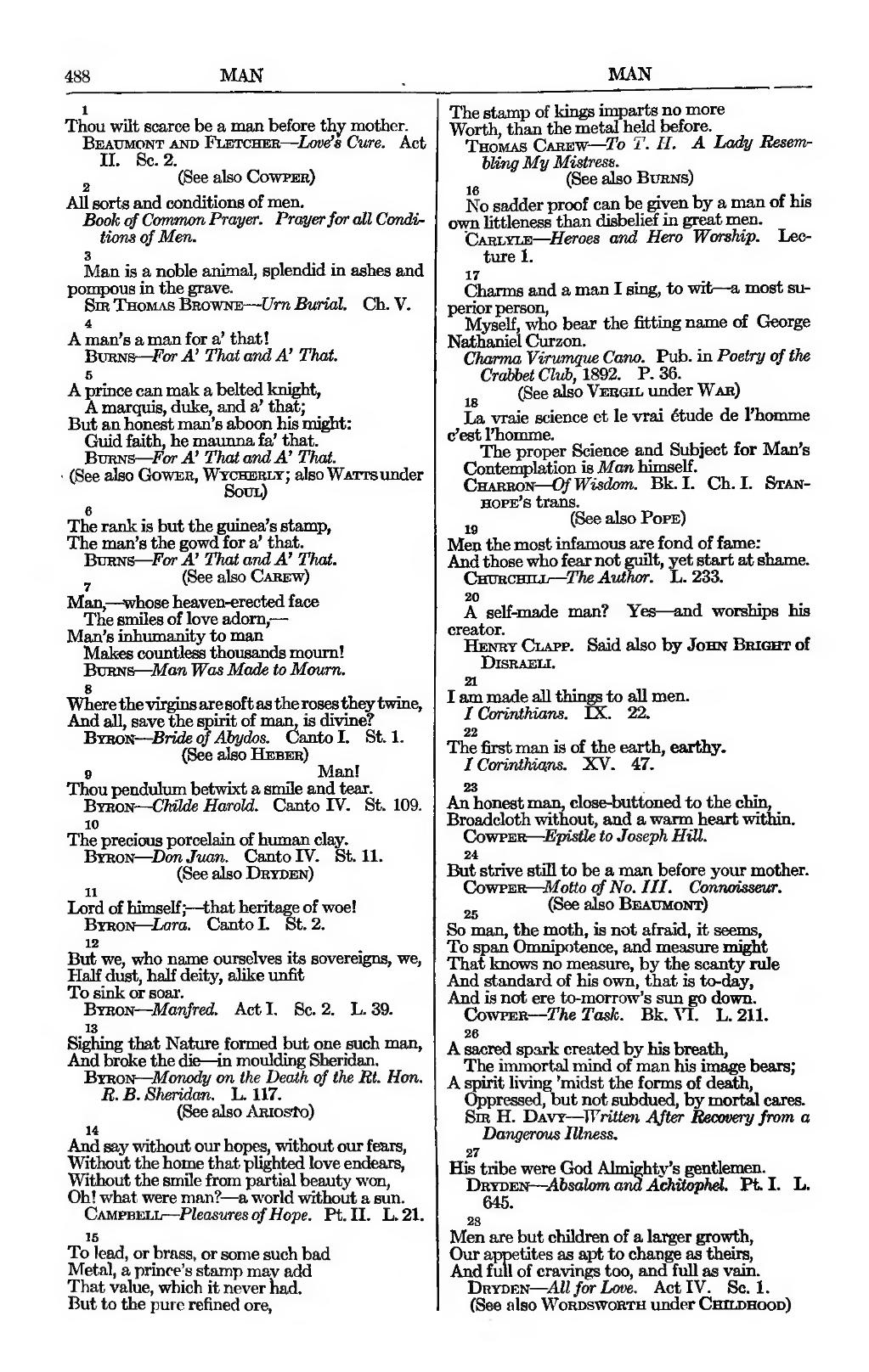Thou wilt scarce be a man before thy mother.
All sorts and conditions of men.
Man is a noble animal, splendid in ashes and pompous in the grave.
A man's a man for a' that!
A prince can mak a belted knight,
A marquis, duke, and a' that;
But an honest man's aboon his might:
Guid faith, he maunna fa' that.
The rank is but the guinea's stamp,
The man's the gowd for a' that.
Man,—whose heaven-erected face
The smiles of love adorn,-—
Man's inhumanity to man
Makes countless thousands mourn!
Where the virgins are soft as the roses they twine,
And all, save the spirit of man, is divine?
Man!
Thou pendulum betwixt a smile and tear.
The precious porcelain of human clay.
Lord of himself;—that heritage of woe!
But we, who name ourselves its sovereigns, we,
Half dust, half deity, alike unfit
To sink or soar.
Sighing that Nature formed but one such man,
And broke the die—in moulding Sheridan.
And say without our hopes, without our fears,
Without the home that plighted love endears,
Without the smile from partial beauty won,
Oh! what were man?—a world without a sun.
To lead, or brass, or some such bad
Metal, a prince's stamp mav add That value, which it never had. But to the pure refined ore, The stamp of kings imparts no more Worth, than the metal held before.</poem>
No sadder proof can be given by a man of his own littleness than disbelief in great men.
Charms and a man I sing, to wit—a most superior person,
Myself, who bear the fitting name of George Nathaniel Curzon.
La vraie science et le vrai étude de l'homme c'est l'homme.
The proper Science and Subject for Man's Contemplation is Man himself.
Men the most infamous are fond of fame:
And those who fear not guilt, yet start at shame.
A self-made man? Yes—and worships his creator.
I am made all things to all men.
The first man is of the earth, earthy.
An honest man, close-buttoned to the chin,
Broadcloth without, and a warm heart within.
But strive still to be a man before your mother.
So man, the moth, is not afraid, it seems,
To span Omnipotence, and measure might
That knows no measure, by the scanty rule
And standard of his own, that is to-day,
And is not ere to-morrow's sun go down.
A sacred spark created by his breath,
The immortal mind of man his image bears;
A spirit living 'midst the forms of death,
Oppressed, but not subdued, by mortal cares.
His tribe were God Almighty's gentlemen.
Men are but children of a larger growth,
Our appetites as apt to change as theirs,
And full of cravings too, and full as vain.
